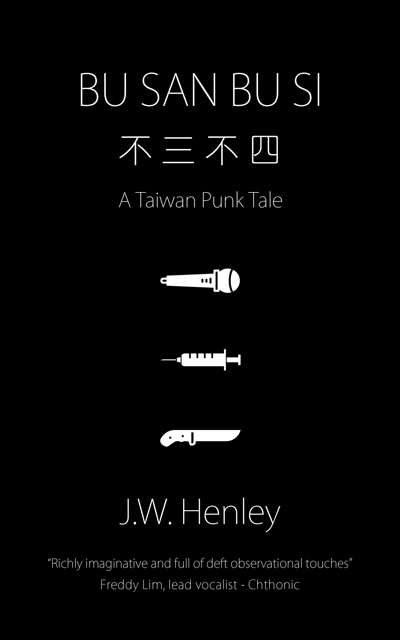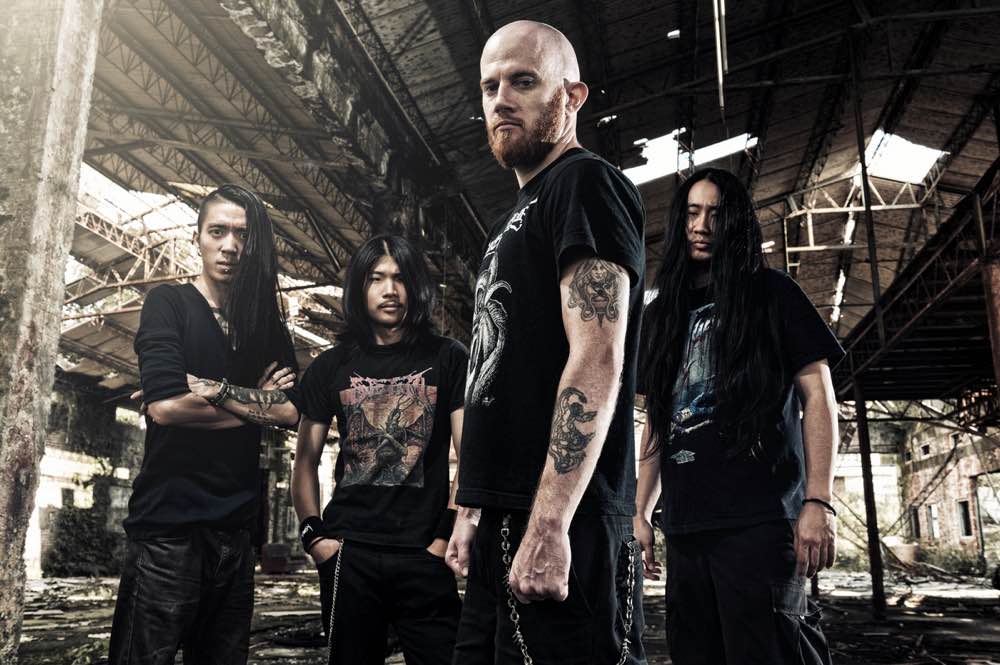
Yet punk is thriving in Taiwan, according to Joe Henley, a Canadian expatriate writer in Taipei who’s been writing about the music scene since 2008, while also singing in two bands. Henley’s just-published novel Bu San Bu Si is the story of Xiao Hei, a misfit Taipei punk guitarist, and his band mates in the group Resistant Strain. ‘The four of them are caught between a foreign punk subculture they’ve fallen in love with, and the at times stiflingly conformist culture of their homeland, and between their need to be true to themselves and their niche form of music while also lusting after fame. When booze, drugs, and gangsters enter the picture, they’ll have to decide what really matters most, and what they’re truly willing to sacrifice,’ is how the author summarizes his second novel.
Aspects of the story are based on Henley’s own experiences in Taipei’s music scene, and those of his friends and acquaintances. ‘The settings, such as the venues, are almost all places you can still find in Taipei today, but in the book they’re given different names – except Underworld, which I kept as is to preserve the memory of a place where I loved playing and hanging out, but which got closed down a few years ago,’ he says.
Henley stresses that none of the characters are based on current or former band mates of his, but the plot does include, ‘amalgamations of events that have happened to Taiwanese metal and punk musicians I’ve come to know over the years.’
The Saskatoon native thinks being a punk here is a bit different to being one in the West: ‘It’s a newer phenomenon. The scene isn’t all that old, and it’s still quite small. The public doesn’t know much about it, so it’s perhaps a bit more shocking to your average man or woman on the street. Family pressure does play quite a large role here. For a lot of parents, music is something you’re supposed to do as a child, but once you’re out of university, it’s time to get a job and focus on making money and having a family of your own. Music is little more than an unwelcome distraction from those things which, according to tradition, are supposed to matter most. As things are now, having a family is getting less and less tenable for young people in Taiwan. Maybe that’s why Taiwan is now seeing more and more punk bands emerge. The youth are getting restless!’
‘I think the spirit of punk and metal are always the same, no matter where you go. It’s always about rebellion, independence, finding your own way in life and questioning authority. Punk in any country is usually political, but some of the issues here in Taiwan are very much unique to this place and time. There are messages these bands feel the need to get out there. Through their music, they’re getting people to pay attention, at home and abroad,’ he says.
Henley has written about Taiwan’s music scene for local English-language publications, and says this has granted him a window into the lives of local musicians. ‘But there are certain things I can’t print in a newspaper article. You know, if a musician tells me about how they might have to quit their band to pay down a family member’s debts, or the time a prominent local musician got into a fist fight over a missing show fee. But I might be able to change the names and some of the details, and sneak them into a book or a short story.’
Bu San Bu Si is available in both print and electronic formats from Camphor Press, a Taipei-based publishing house which specializes in books about Taiwan and China.

